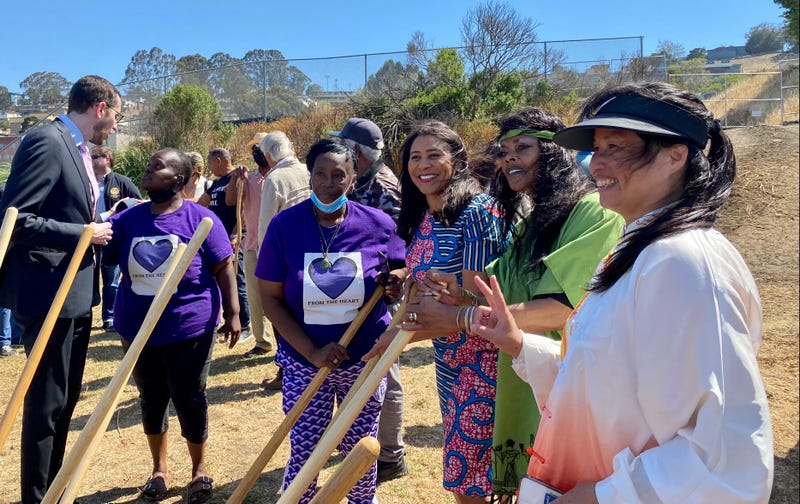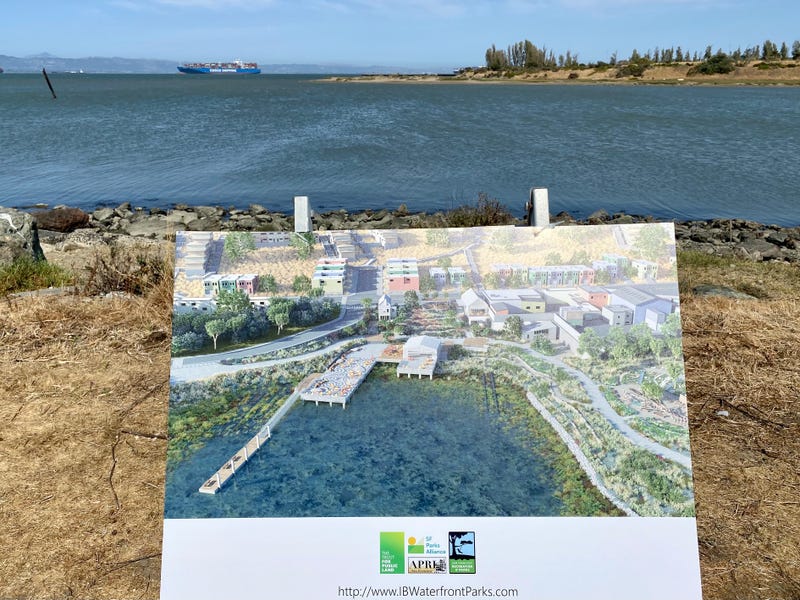
Sometimes nature comes with a price tag.
Mayor London Breed, community members, environmental advocates, and public officials joined together on Thursday to launch the $140 million India Basin shoreline park project in the Bayview.
The first phase of the project is cleanup along the shoreline.
"The remediation work which we’re kicking off right now will restore public access to the shoreline and create a robust wildlife habitat," said San Francisco Recreation and Park General Manager Phil Ginsburg.
Bayview-based Rubecon Builders is leading the remediation.
The goal is to remove debris and run-down structures, replenish the soil, and remove pollution leftover from the site’s decades of building and repairing ships. The San Francisco Bay Regional Water Quality Control Board will oversee the process.
The result will be a restored tidal marsh and wildlife habitat. The space will eventually encompass around 1.7 miles of open recreation area.

"For a park project, this is the biggest thing we’ve ever done," said Ginsburg.
Mayor Breed believes the project is a worthwhile investment for the Bayview. "San Francisco is going to come back from this pandemic stronger than ever. This significant investment from the state helps us ensure that every neighborhood benefits from our city’s economic recovery and commitment to environmental justice," said Breed. "The India Basin project is creating jobs in the Bayview, while also creating an extraordinary shoreline park that reflects the neighborhood’s history, arts and culture."
Funding for the project is coming from a variety of sources.
Gov. Gavin Newsom’s proposed budget includes $25 million for the park. State legislators approved the budget this week and it must be finalized by June 30. In addition, $29 million has been set aside for the project through San Francisco’s 2020 Health and Recovery Bond as well as a $25 million gift from the Pritzker Family Fund in 2019.
But that’s not all.
More state funding includes a $8.5 million grant provided through Proposition 68, a $4 billion bond passed by California voters in June 2018 for park maintenance, as well as $4 million in state budget funds secured by Assemblymember Phil Ting.
For those worried about the possible economic and social impact the park will have on the neighborhood, equity is at the forefront of organizers’ minds.
The space is meant to promote equity, said Ginsburg. "We’re not going to come in, spruce up the place and then chase people out," he said. "We want this to be for the existing community and existing neighborhood because this community deserves it."

